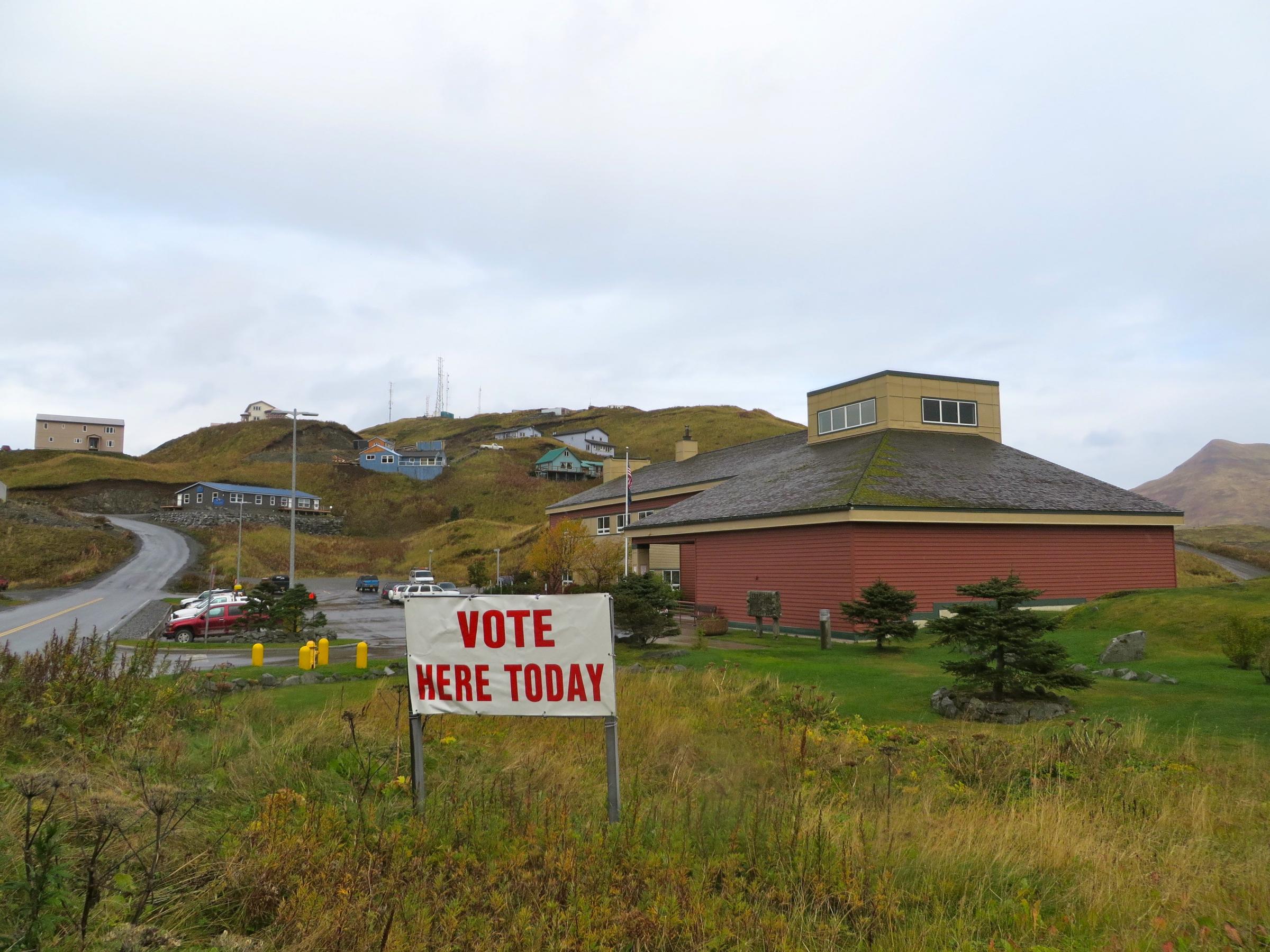
(Photo by Laura Kraegel, KUCB – Unalaska)
On Monday, KUCB reported that sponsors of the petition to recall Unalaska Mayor Frank Kelty have no proof supporting their allegation that he pursued illegal dock agreements.
Now, we bring you the story of why the recall is still moving forward — without evidence.
Sponsor Erin Enlow Anderson said the recall is a vote of no confidence in Kelty and how he’s been running the city.
“Since he’s been in office, my observations is there’s been a lot of chaos,” said Enlow Anderson.
But is that reason enough to oust the mayor before the next regular election? In Alaska, recalls don’t require petitioners to prove their allegations.
Under Alaska law, City Clerk Marjie Veeder said there are three reasons an elected official can be recalled: “Misconduct in office, incompetence, or failure to perform prescribed duties.”
When Veeder received the initial application to recall Kelty, it included four charges against him. She reviewed those charges — with guidance from City Attorney Brooks Chandler — and decided only one met the standard for misconduct. (Chandler declined to comment for this story.)
That charge was “Disregard for the intent of Unalaska Code of Ordinances Title 7: by attempting to sole-source land use agreements at the Unalaska Marine Center.”
In other words, the 10 petition sponsors — Enlow Anderson, Jeff Treannie, Sharon Treannie, Clint Huling, Robert Marquardt, Alena Syverson, Christina Chamberlain, Jason Gates, Amanda Gates, and Ryan Burke — believe the mayor attempted to give the shipping company Matson first crack at an agreement for priority mooring at a section of dock.
And if that is true, Veeder says it would violate the law.
“The Unalaska Marine Center is a public asset,” she said. “We are not allowed to sole-source. Meaning, [we are not allowed to] not issue a request for proposals and give companies equal opportunities to submit a proposal for how that asset will be used.”
But that doesn’t mean anyone has shown Kelty actually did anything illegal, because petitioners don’t have to prove their allegations are true. Neither does the city clerk.
The only thing the clerk has to demonstrate is that if the allegation were true, it would be sufficient grounds for a recall.
Veeder said she doesn’t know if Kelty attempted to sole-source a dock agreement. And when asked, she was unable provide examples of actions that would implicate him.
“I can’t speak to that because I don’t know,” she said. “But I can tell you that there was no RFP issued, and we didn’t go through a public process.”
With no proof required, KUCB asked Veeder if that means you can recall anyone you don’t like? Just by claiming they did something illegal?
“I suppose that could be done,” she said. “That’s why questions like this are left to the voters. The allegations have been made. It’s up to the voters to determine what they want to do with the question.”
Voters will have the chance to decide what happens to Kelty when the polls open March 6.
The ballot will include the sole-sourcing charge listed on the petition, as well as a 200-word rebuttal from Kelty. Then it’ll ask voters to answer the question: “Shall Frank Kelty be recalled from the office of mayor? Yes or no.”
A simple majority is required to recall the mayor. So if more than 50 percent of voters choose “yes,” the office will be vacant until a special election is called and a new mayor elected.
That process would take no more than 60 days, during which Vice Mayor Dennis Robinson would act as mayor.
If that scenario plays out, Veeder said she doesn’t see any reason why Kelty would be prohibited from running again in the special election.
She also said Unalaskans could file another recall petition six months after election results are certified — and they could apply with the same charge.
“There is nothing in code that prescribes that it has to be a different reason than the last time,” she said.
Veeder said she is happy to answer any questions that community members have about the recall process.
The election is scheduled for March 6.
Zoe Sobel is a reporter with Alaska's Energy Desk based in Unalaska. As a high schooler in Portland, Maine, Zoë Sobel got her first taste of public radio at NPR’s easternmost station. From there, she moved to Boston where she studied at Wellesley College and worked at WBUR, covering sports for Only A Game and the trial of convicted Boston Marathon bomber Dzhokhar Tsarnaev.




